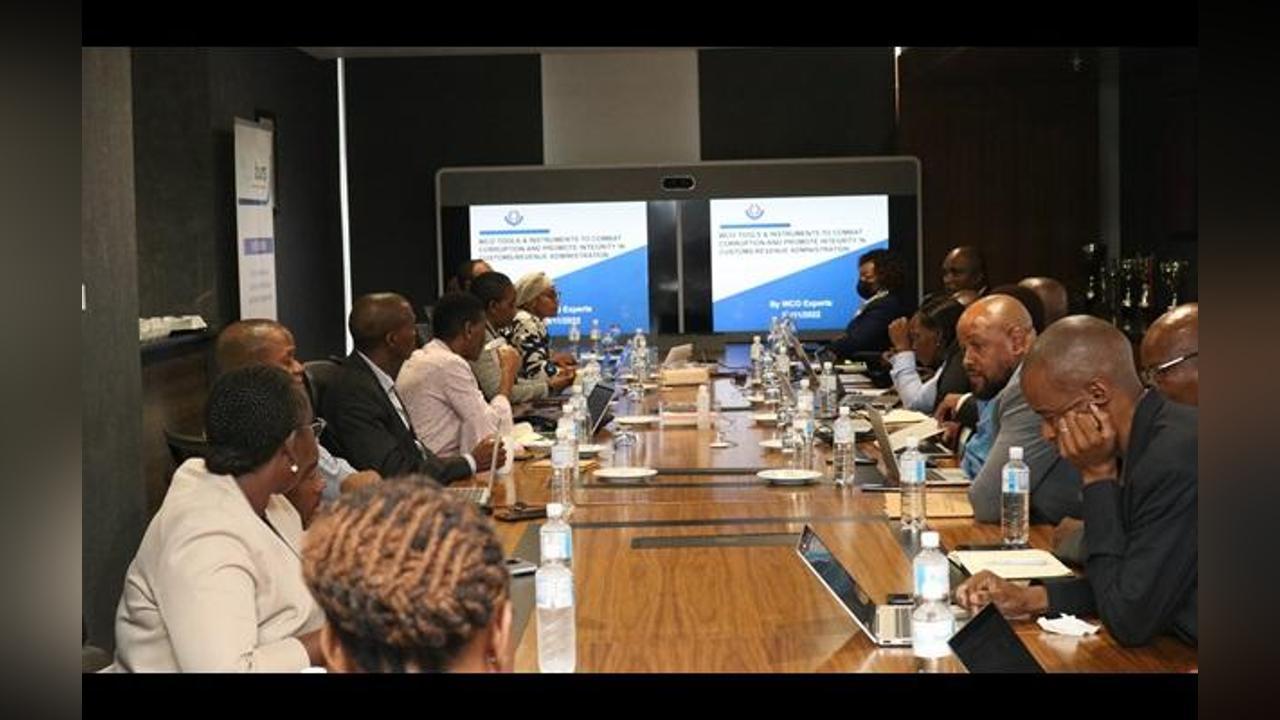Africa-Press – Eswatini. Since the Eswatini National Trade Facilitation Programme Road Map for 2019 – 2022 has come to an end, drafting of a new road map is underway.
Yesterday, members of the Eswatini National Trade Facilitation Committee (NTCF) convened for a workshop to capacitate them as they draft the new strategy. The three-day workshop held at the Royal Villas began yesterday and shall end tomorrow. The workshop aims to assist NTFC members and relevant focal points on the development of their National Trade Facilitation Road map. Additionally, during the workshop the participants will receive training on the use of the United Nations Conference on Trade and Development (UNCTAD) Reform Tracker, as a monitoring tool of trade facilitation reforms. These courses are provided under the Empowerment Programme for National Trade Facilitation Committees.
Necessitated
It is worth noting that Eswatini is part of the UNCTAD, which necessitated the formation of the NTFCs, which are important platforms for institutional coordination and stakeholders’ consultation with balanced private and public sector participation. They enable the planning and implementation of successful trade facilitation reforms in member states. During the workshop, the participants from different agencies of the public and private sector will actively discuss the vision statement, objectives, activities, and indicators, among other important aspects, to draft their national trade facilitation road map. They will also receive training on the use of the main functionalities of the UNCTAD Reform Tracker. This tool will be essential for the successful monitoring of the implementation of trade facilitation measures under the WTO TFA and beyond. This project has the financial support of the Government of the United Kingdom, acting through HM Revenue and Customs.
Speaking during the official opening of workshop, the Chairperson of the NTFC, Brightwell Nkambule, said they were excited to finally manage to convene this workshop, after a long pause, and this was a positive sign that could continue with the work of the Trade Facilitation Programme. Nkambule mentioned that the Eswatini National Trade Facilitation Programme Road Map could serve as a catalyst in addressing key trade barriers and enhancing economic growth.
Attention
He said, however, several areas require attention and these include; implementation time frame for the road map, engagement of stakeholders, capacity building, infrastructure development, customs modernisation, regulatory reforms, monitoring and evaluation, risk management and sustainability of the programme. Nkambule said since the road map to be reviewed during the workshop was for the period 2019 – 2022, it was, therefore, imperative to note that the new road map needed a clear and realistic timeline for each phase to ensure timely execution. He said another critical issue is the engagement of stakeholders in order to ensure active participation of all concerned parties, including government ministries and departments, private sector and civil society, to guarantee a holistic approach for the successful review of the road map.
Nkambule said other key elements included infrastructure development and there was, therefore, a need for massive investment in physical and digital infrastructure improvements to streamline cross-border trade processes. He said closely related to the foregoing was customs modernisation, which focused on modernising customs procedures and technology to reduce delays and simplify documentation.
Agreements
Furthermore, he said implementation of the Trade Facilitation agreements came with a number of regulatory reforms and there was, therefore, a need for continued efforts to simplify and harmonise trade regulations to foster a more business-friendly environment. Nkambule reiterated the need to track progress while implementing the road map, hence monitoring and evaluation was very key. “We, therefore, need to establish a robust monitoring and evaluation mechanism to track progress, identify bottlenecks and adapt strategies as needed,” said Nkambule. He said they also needed to regularly assess the capacity of institutions involved in trade facilitation and provide the necessary support so as to mitigate and manage risk.
The chairperson said for them to keep the programme’s sustainability they needed to explore options for long-term funding mechanisms, include the Trade Facilitation programme in their various ministries and organisations as they budgeted and also provide all the necessary human and financial resources. Nkambule added that the Eswatini National Trade Facilitation Programme road map held great potential, but its success would depend on the committee members ’continued support and active participation, more especially on the scheduled quarterly NTFC meetings. Nkambule then invited the members of the NTFC to their next meeting which would be held on the last week of September, where they would consider and approve this road map.
For More News And Analysis About Eswatini Follow Africa-Press







